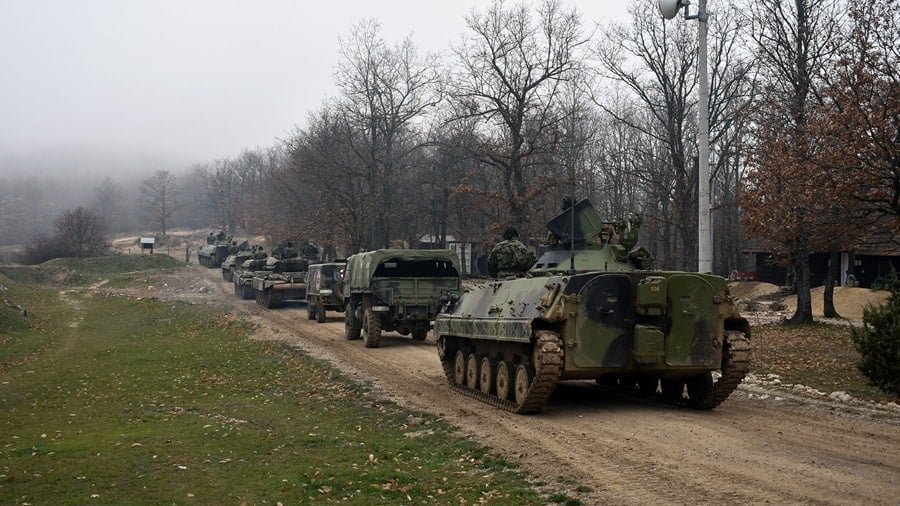
Turkey has dispatched thousands of kamikaze drones to Kosovo this week, potentially heightening regional tensions in the Balkans.
Kosovo’s Prime Minister Albin Kurti announced the shipment of these explosive-laden, FPV (First-Person View) drones, which arrived in containers at Pristina’s Adem Jashari International Airport.
The delivery of Turkish-made Skydagger kamikaze drones, in a deal signed with Turkish defense manufacturer Baykar last December, immediately raises security concerns for neighboring Serbia and dramatically alters the military balance in the region.
Turkey’s drones to Kosovo: Implications for regional stability
The delivery of thousands of these advanced strike platforms has major geopolitical implications.
Serbian President Aleksandar Vučić and other top officials have condemned the delivery as a grave violation of UN Security Council Resolution 1244, which recognizes KFOR as the only authorized armed force in Kosovo. Serbia views Turkey’s action as actively destabilizing the Western Balkans and has publicly expressed its outrage, accusing Ankara of “dreaming of restoring the Ottoman Empire.”
The Skydagger drones are small, inexpensive, and effective weapons of modern, decentralized warfare. Their arrival not only strengthens the Kosovo Security Force (KSF) striking power but also gives them a potent capability to target armored vehicles and fixed positions—a warning shot to any potential incursions across the border.
The transaction underscores Turkey’s growing strategic influence in the Balkans, acting as a major supplier of military hardware to Kosovo despite Serbian objections. This is further complicated by the fact that Turkish Major General Ozkan Ulutas has recently assumed command of NATO’s KFOR mission in Kosovo for a one-year term. Turkey is now a key security partner for the KSF while simultaneously leading the NATO peacekeeping force meant to maintain neutrality.
This acquisition occurs against a backdrop of already high tensions, particularly in northern Kosovo where ethnic Serbs largely reject Pristina’s authority. The presence of thousands of new, lethal kamikaze drones lowers the threshold for a rapid escalation should any border incident or civil unrest ensue.
Technical capability of the drones
Prime Minister Kurti confirmed that dozens of FSK soldiers have already been trained to operate the Skydagger drones, which are designed as “Ready to Fly” (RTF) FPV systems.
Equipped with dual thermal and daylight cameras, the drones can operate in all lighting conditions. Their relatively high speed (about 80 miles/hr) and over 6-mile range make them ideal for quick, pinpoint tactical strikes against mobile or stationary enemy targets.
The drones join Kosovo’s existing fleet of Bayraktar TB2 and Puma unmanned aircraft, reflecting a commitment to building a “competent and compatible force in line with new technological developments and modern warfare tactics.”
By bypassing traditional arms acquisition timelines and receiving this massive shipment early, Kosovo has fundamentally changed the conversation around its security posture, forcing its adversaries to immediately address a new, asymmetric threat.
Related: Turkey Set to Ratify Military Agreements with Balkan Countries Surrounding Greece


